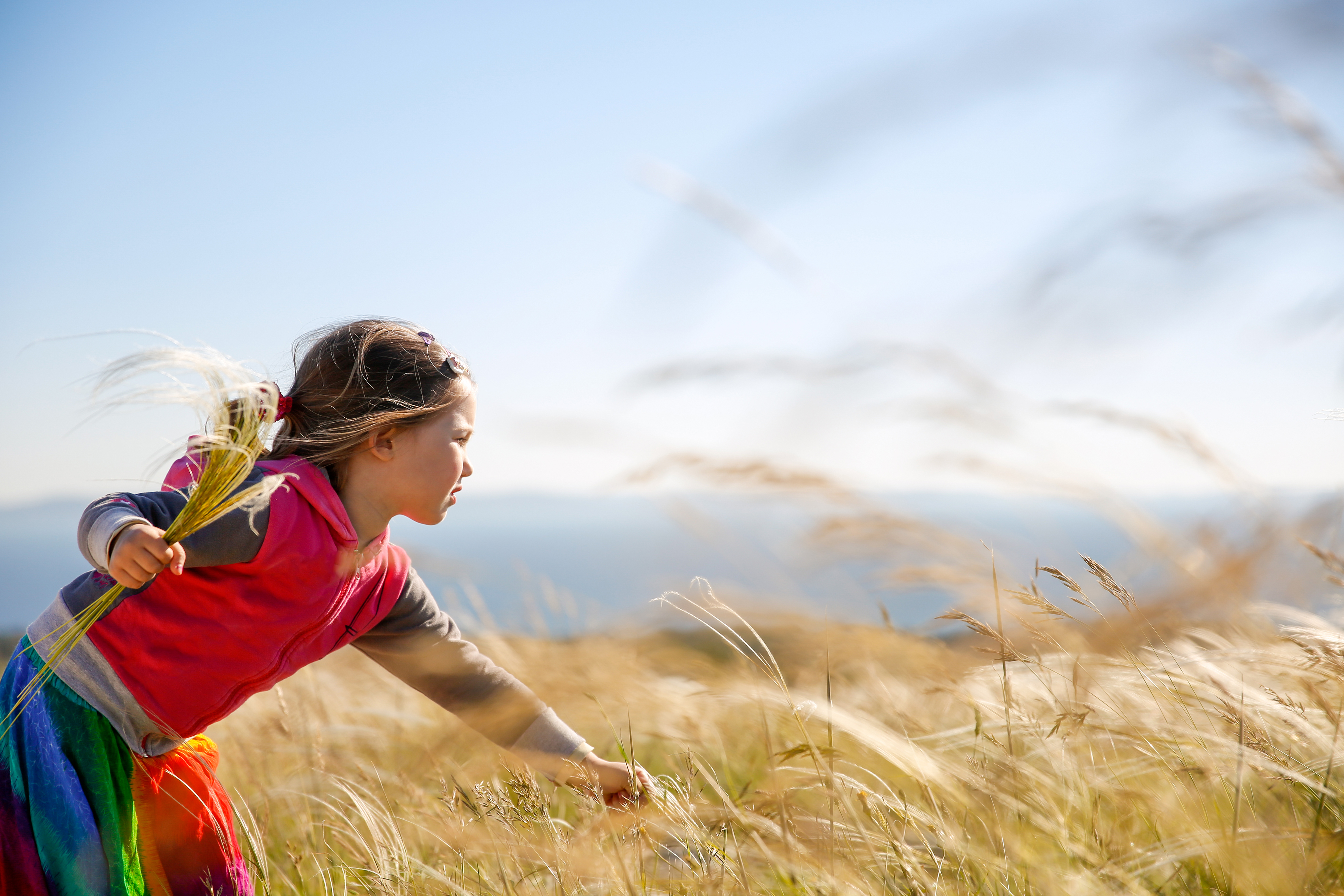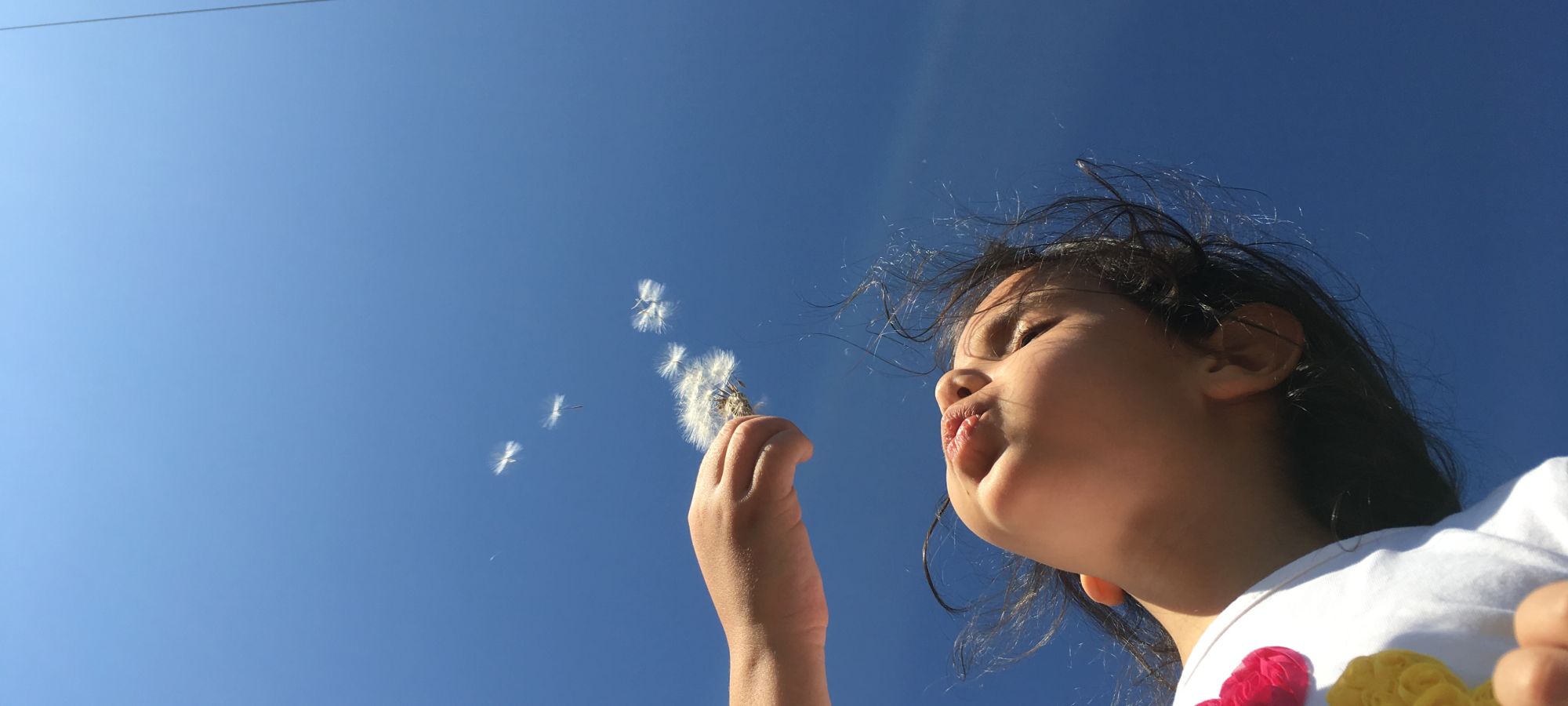Desensitization in children
Does your child have "hay fever"? Then desensitization could be an option in fall and winter, when the pollen is no longer in the air. This tackles the cause of the allergy and is also a good idea for children. It may even be that hyposensitization will reduce the likelihood of other allergies developing.
- Pollenalergie Symptome
- Behandlung der Ursache durch Hyposensibilisierung
- Alternativen zur Hyposensibilisierung
- Pollen allergy symptoms
- Treatment of the root cause by desensitization
- Alternatives to desensitization
Our pediatrician Claudia Schweighart from the St. Gallen Kinderarzthaus answers the most important questions in an interview.
How do you find out which allergen my child is allergic to?
It is very important for parents to assess whether and when their child exhibits symptoms. We usually recommend hanging a calendar in the kitchen and writing down the child's symptoms every day. A skin or blood test alone is never enough, even if many people think it is. In addition, a pediatrician must analyze the symptoms. If one of these pieces of the puzzle is missing, no credible diagnosis can be made.
What symptoms should I look out for?

Hay fever occurs when the corresponding pollen is in the air. In spring or summer. If the child spends a lot of time outdoors, the symptoms will get worse. This is an important difference compared to allergies to dust mites or mold. The symptoms are similar. But they are usually noticeable throughout the year.
The most common symptoms of a pollen allergy, also known as hay fever, are an allergic runny nose, coughing and shortness of breath. The child's nose itches and tingles, and is often "running" constantly. The secretion is usually transparent and quite liquid—in contrast to that of a cold, which is more yellowish and thick. Some children sleep badly because of their blocked nose. If the conjunctiva of the eyes becomes inflamed, you can recognize this by red eyes, itching and sometimes even swollen skin around the eyes.
If your child has difficulty breathing, we always recommend that you visit a pediatrician. Your child will be examined carefully and avoidance strategies and treatment options will be discussed.
Claudia Schweighart, what is desensitization?
Instead of referring to it as desensitization, many also refer to it as allergy vaccination. In 80 percent of patients, there is a significant reduction in allergy symptoms. This in turn improves their quality of life. Desensitization tries to get the immune system used to the allergen – the trigger of the allergy.
How exactly does the treatment work?

In an allergy, the immune system of the body reacts, without cause, excessively strongly to certain components in tree, grass or herbal pollen, but also to mites or mold, for example. If the body comes into contact with the pollen, it sends out messengers that can cause inflammation in the nose, eyes and lungs.
In the first step before desensitization, the child's parents are consulted and an attempt is made to use various allergy tests to find out which allergen is mainly responsible for the allergic reaction. This is crucial for ensuring the therapy is successful.
In the second step of the desensitization itself, the allergen is then injected under the skin with a small needle or, in individual cases, taken orally in tablet form. It starts in very small doses, and then slowly increases. As a rule, the entire therapy lasts three years. Over time, the immune system gets used to the allergen and ceases having such a negative reaction to it. The allergic symptoms decrease more and more.
What are the alternatives to desensitization?
The symptoms can be alleviated by avoiding the allergen. We recommend:
- Taking off and storing day clothes outside the bedroom
- Rinsing your hair in the evening
- Drying laundry indoors
- Keeping doors and windows closed (except for a short burst of ventilation)
- If you are allergic to house dust mites, for example, you can buy special bed linen, or if you are allergic to animal hair or dandruff, you can remove carpets
If these avoidance strategies are not sufficient, antihistamine eye and nasal drops may also be recommended. Tablets, e.g., antihistamines, can also alleviate the symptoms. If the patient is suffering greatly, cortisone-containing medications can also be used. However, desensitization is currently the only therapy that can eradicate the allergy.
Why is desensitization usually carried out in fall or winter?
Because the body is already under strain when pollen and grasses are in the air, it should not be exposed to additional allergens. Whether the treatment is started in fall or winter depends on the treatment plan. There are short-term therapies before the pollen season—which are carried out right now in fall or winter. In addition, there are also year-round therapies. Your pediatrician can advise you on which scheme makes the most sense for your child.
Does desensitization also work for allergies to house dust mites or insect venom?
Yes, desensitization can also be carried out with these allergies. However, it is most commonly used for pollen allergies. Finally, it is the most common allergic condition in Switzerland: According to the Swiss Allergy Center, 20 percent of the population currently have an allergy to pollen. Sometimes the allergy does not develop until adulthood, but children are often affected.
 Not all children react to pollen. Why are some allergic and others not?
Not all children react to pollen. Why are some allergic and others not?
There are many theories. The only thing that seems certain at the moment is that several factors lead to the development of an allergy. Both genes and the environment can play a role.
Is it true that certain children are allergic to the therapy?
Desensitization is only carried out in a medical practice that is equipped for it. The child always stays in the practice for half an hour after treatment for observation and is treated immediately if necessary. As a result, you needn't worry. Of course, the pediatrician will provide detailed information about possible undesirable reactions from the body during a consultation. A common reaction, for example, is that the arm becomes somewhat thick or red at the injection site—as with a normal vaccination.
Thank you for the interesting conversation, Claudia Schweighart!
The interview with Dr. med. Claudia Schweighart was conducted by Rahel Landolt.
October 24, 2019, Kinderarzthaus in St. Gallen
